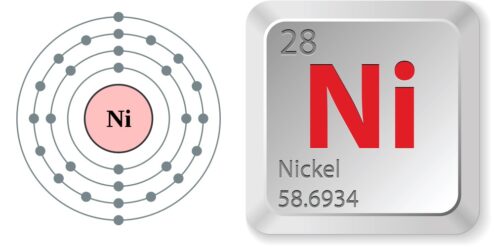Introduzione: Nickel is a trace element that plays a vital role in the proper functioning of the human body. It aids in the metabolism of nutrients and the production of certain hormones. However, excessive intake of nickel can lead to health issues such as skin allergies and respiratory problems. Hence, it is crucial to understand the foods that are high in nickel and manage its intake effectively.
Understanding the Importance of Nickel in Our Diet
Nickel, though required in minute quantities, is essential for several physiological functions. It acts as a cofactor for certain enzymes, assisting in energy metabolism and hormone production. Moreover, it contributes to the structural and functional integrity of the cell membrane. Despite its importance, an excess of nickel can cause health problems. Therefore, understanding the dietary sources of nickel is crucial to maintain its optimal level in the body.
Identifying Foods High in Nickel Content
Many foods contain nickel in varying amounts. Foods with high nickel content include whole grains, nuts, legumes, and certain types of seafood. Processed foods also tend to have higher nickel content due to the use of nickel-containing equipment during processing. It’s important to note that the nickel content in foods can vary depending on the soil and water where the food is grown or raised.
The Role of Whole Grains and Nuts in Nickel Intake
Whole grains and nuts are among the richest sources of dietary nickel. Whole grains such as wheat, oats, and brown rice contain significant amounts of nickel. Similarly, nuts like almonds, cashews, and peanuts are high in nickel content. While these foods are nutritious and beneficial for health, individuals sensitive to nickel may need to limit their consumption.
Seafood and Legumes: Nickel-Rich Food Sources
Seafood, including shellfish, salmon, and haddock, are high in nickel content. Similarly, legumes such as lentils, chickpeas, and soybeans contain substantial amounts of nickel. These foods are a crucial part of a balanced diet, providing essential nutrients like protein, fiber, and healthy fats. However, individuals with nickel sensitivity or allergy should consume them in moderation.
The Impact of Processed Foods on Nickel Consumption
Processed foods often contain higher amounts of nickel due to the use of nickel-containing machinery in their production. Foods such as canned goods, fast food, and certain types of chocolate can have elevated nickel levels. Additionally, cooking acidic foods in nickel-plated utensils can increase the nickel content of the food. Hence, limiting the consumption of processed foods can help manage nickel intake.
Managing Nickel Intake: Health Implications and Recommendations
Excessive intake of nickel can lead to nickel allergy, characterized by skin rashes and itching. It may also cause respiratory issues like asthma and chronic bronchitis. To manage nickel intake, individuals can opt for a balanced diet, limiting the consumption of high-nickel foods. Additionally, cooking in stainless steel or iron cookware instead of nickel-plated utensils can help reduce dietary nickel exposure.
Conclusioni: Nickel is an essential trace element, but its excessive intake can lead to health problems. By understanding the foods high in nickel and managing its intake, individuals can maintain optimal health. It is also recommended to limit the consumption of processed foods and use non-nickel cookware to reduce nickel exposure.
Per approfondire:
- National Institutes of Health – Nickel: This link provides comprehensive information on the dietary sources, health effects, and recommended intake of nickel.
- American Academy of Dermatology – Nickel Allergy: This source discusses the symptoms, causes, and management of nickel allergy.
- World Health Organization – Nickel in Drinking-water: This document provides information on the impact of nickel in drinking water on human health.
- The Journal of Nutrition – Dietary Nickel as a Cause of Systemic Contact Dermatitis: This research article explores the link between dietary nickel and contact dermatitis.
- European Food Safety Authority – Nickel in Food: This scientific opinion provides an in-depth analysis of nickel presence in various foods and its potential health risks.


